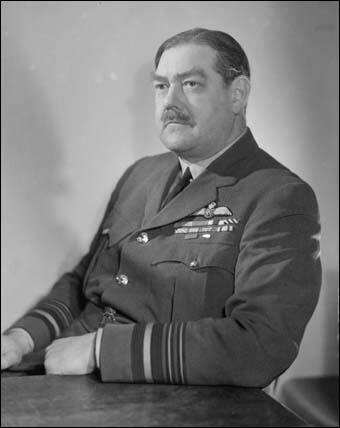On this day on 25th September
On this day in 1237 the Treaty of York was signed by kings Henry III of England and Alexander II of Scotland which establishes a boundary between the two countries. This affirmed that Northumberland, Cumberland, and Westmorland were subject to English sovereignty.
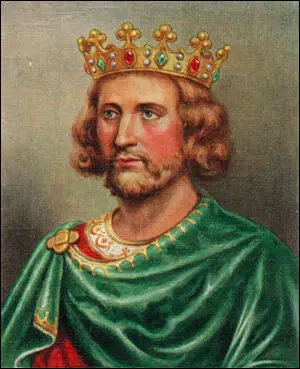
On this day in 1852 John French was born in Ripple, Kent. A cavalry commander in South Africa during the Boer War (1899-1901) he was appointed Chief of Staff of the British Army in 1911, French took command of the British Expeditionary Force sent to Europe in August 1914. Ironically, his sister, Charlotte Despard, was one of Britain's leading anti-war campaigners. After Mons French became very pessimistic about the outcome of the war and Lord Kitchener, Secretary for War, had to apply pressure in order to persuade him to take part in the Marne offensive. French resigned in December, 1915 and Sir Douglas Haig replaced as leader of the BEF. French, as commander of the British home forces, was responsible for dealing with the Easter Rising in 1916. Rewarded with the post of Lord Lieutenant of Ireland (1918-1921), French was granted £50,000 by the British government when he retired. Sir John French died in 1925.
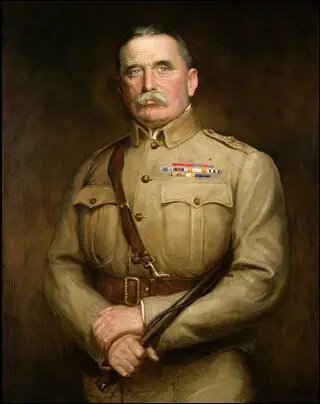
On this day in 1867 Congress created 1st all-black university, Howard University in Washington, D.C. . Instigated by the Radical Republicans it was named after General Oliver Howard, a Civil War hero and commissioner of the Bureau of Refugees and a leading figure in the Freeman's Bureau. The stated purpose of Howard University when it was founded was to create "a college for the instruction of youth in the liberal arts and sciences". The Freeman's Bureau provided most of the early financial support and the majority of its students were African American. Within two years the university consisted of colleges of Liberal Arts and Medicine. In the 1960s the faculty and student body played an important role in the civil rights movement. Howard University now operates its own hospital, radio and television stations, hotel and publishing house. In 2000 the university had 10,248 students (86 per cent African American).
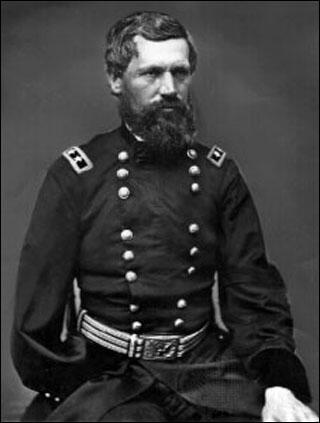
On this day in 1867 Katharine Conway, the daughter of the Samuel Conway and Amy Curling, was born. Her father was a Congregational parson in Chipping Ongar, but when Katharine was a child the family moved to Walthamstow.
The Conways held progressive views and Katharine received an education equivalent to that of her brothers. After being educated at home by her mother until the age of ten, Katharine went to the Hackney Downs High School for Girls.
Amy Conway died in 1881 after giving birth to her seventh child. This was a devastating blow as Katharine was very close to her mother. She later told Ramsay MacDonald: "I was 12 when my mother died and until my father married again when I was nearly 16 I had no home happiness at all. His grief and loneliness put out the sunshine for us children. And the second wife was tenderly good to us."
At the age of nineteen, Katharine began her studies at Newnham College, Cambridge. At university Katharine came under the influence of the militant feminist, Helen Gladstone, the youngest daughter of Herbert Gladstone. Katharine also met Olive Schreiner, a woman who "encouraged every bit of courageous aspiration or rebellion she found in us." She finished her studies in 1889 and she was officially placed second in her College Tripos though Gladstone claimed she really come top. At that time Cambridge University did not grant woman degrees but for the rest of her life she always placed the initials B.A. after her name.
Katharine found work as a Classics mistress at Redland High School in Bristol. One Sunday in November, 1890, Katharine was on her way to church when she encountered a demonstration by low-paid women workers. Katharine asked the women about their problems and it was later claimed that it was the discussion with these women that converted her to socialism. Soon after this incident, Katharine joined the Bristol Socialist Society.
Most of the members of the Socialist Society were supporters of H. H. Hyndman and the Social Democratic Federation. Katharine found their views too revolutionary and left to join the Bristol Fabian Society. Uncomfortable with her position teaching at a selective school, Katharine resigned and took a job at a board school in St Philips, a working class district of Bristol.
Katherine was greatly influenced by Edward Carpenter's book England's Ideal (1887): "Edward Carpenter woke a new power of love and worship within me. It was as if in that smoke-laden room a great window had been flung wide open and the vision of a new world had been shown me: of the earth reborn to beauty and joy, the home, to use Edward Carpenter's own words, 'of a free people, proud in the mastery and divinity of their lives. As I went back to my Clifton lodgings, I vaguely realised that every value life had previously held for me had changed as by some mysterious spiritual alchemy. I was ashamed of the privileges and elaborate refinements of which I had previously been so proud; the joy of comradeship, the glory of life, lost and found in the 'agelong, peerless cause' had been revealed to me, dimming all others."
In 1891 the Fabian Society began to arrange for members to travel around the country giving lecturers on Socialism. At the Fabian meetings Katharine impressed local members with her ability to argue the case for socialism that that it was suggested that she should become a Fabian lecturer. Over the next few months Katharine attracted large crowds to hear her talk on subjects such as "Socialism and the Home", "The Religion of Socialism" and "Why Working Women Want the Vote?"
William De Matto commented: "It is possible that Katharine Conway was getting more applause than a woman less young and attractive might have got but that was all doing good to Socialism. She has a peculiar magnetic influence over her audiences, and larger audiences could be drawn for her than for almost any other lecturer."
At these meetings Katharine came into contact with important figures in the Fabian Society including Sidney Webb, Beatrice Webb, George Bernard Shaw and Robert Blatchford. Shaw proposed marriage but Katharine told him that she intended dedicating her life to socialism. Katharine also met Edward Hulton, who recruited her to write for his radical newspaper, the Manchester Sunday Chronicle.
In the autumn of 1892 Katharine attended the Trades Union Congress (TUC) meeting in Glasgow. One of those who heard her speak was Bruce Glasier, one of the leaders of the socialist movement in Scotland. They quickly became close friends and married on 21st June, 1893. George Bernard Shaw sent his congratulations reminding Katherine of what he had previously said about marriage and children. Katherine wrote back explaining she did not intend to have any children. Shaw replied with a postcard: "Invite me to the christening."
Katharine Glasier continued to lecture on socialism but had become critical of the Fabian Society approach to political change. Katharine was a Christian Socialist who once said that to her, "socialism was the economic expression of Christianity". The recently formed, Independent Labour Party, was led by Christians such as James Keir Hardie, Tom Mann, Ben Tillett and Philip Snowden. In 1893 Katharine joined the ILP and it was not long before she became the only woman on the party's National Administrative Council.
When Katharine and Bruce married they agreed not to have children so that they could devote the rest of their lives to the socialist cause. However, in 1896 Bruce Glasier and Emmeline Pankhurst were charged with speaking at an illegal meeting. Katharine was with Emmeline when she returned home after being found not guilty. Katharine was later to say that it was seeing Harry Pankhurst embrace his mother after discovering that she was not to be sent to prison, that convinced her to have children. Her daughter, Jeannie, was born the following year.
Despite being a mother, Katharine Glasier continued to tour the country making speeches on socialism. In 1900 she lectured in over thirty different towns. Bruce Glasier was also in great demand as he had recently been elected as chairman of the Independent Labour Party.
Katharine continued to write and as well as having a regular column in the ILP newspaper The Labour Leader, she contributed to other socialist journals and newspapers such as The Labour Woman. Katharine also wrote a feminist novel, Marget: A Twentieth-Century Novel and Tales from the Derbyshire, a collection of short-stories.
Katharine was not active in the women's suffrage movement. She disagreed with the NUWSS policy of a limited women's suffrage bill and totally disapproved of the militant tactics used by the Women's Social and Political Union (WSPU). Like most members of the Independent Labour Party, Katharine supported the campaign for complete adult suffrage.
In 1916 Katharine Glasier became editor of the The Labour Leader. The anti-war stand that its previous editor, Fenner Brockway, took was continued. At first this caused sales to slump but this eventually attracted a larger readership from young people disillusioned by the war. By the summer of 1917 sales of the newspaper under Katharine's editorship, reached an all-time peak of 51,000. The Independent Labour Party was so pleased that they raised her salary from £2.17.0 to £3.5.0 a week. As editor she clashed with Philip Snowden over his anti-Bolshevik writings.
Ellen Wilkinson heard her speak during this period: "It was a memorable meeting. I got a seat in the front row of the gallery. It seemed noisy to me, whose sole experience of meetings was of religious services. Rows of men filled the platform. But my eyes were riveted on a small slim woman her hair simply coiled into her neck, Katherine Glasier.... To stand on a platform of the Free Trade Hall, to be able to sway a great crowd, to be able to make people work to make life better, to remove slums and underfeeding and misery just because one came and spoke to them about it - that seemed the highest destiny any women could ever hope for."
After the death of Bruce Glasier in 1920 Katharine continued to work for the Independent Labour Party. Katharine joined the Society of Friends and sent her son Glen to the Quaker school at Ackworth. Glen Glasier was a brilliant scholar who had just been awarded a scholarship to Oxford University when he was killed while playing football in 1928. Her son's death inspired the writing of The Glen Book.
Other political campaigns that Katharine was involved in included the fight for pit-head baths for miners and the abolition of the Poor Law. A close friend of Margaret MacMillan, the two women worked together in the fight for school meals and nursery education. Later Katharine was to play a major role in the forming of the Save the Children Fund.
Katharine Glasier was appalled by the behaviour of her old ILP colleagues, James Ramsay MacDonald and Philip Snowden in 1931. However, when the ILP broke away in 1932 Katharine remained with the Labour Party and continued to be active in the movement.
After the first majority Labour Government was formed in July, 1945, she wrote in her diary "the joy of the Harvest". Katharine still had the energy to campaign for causes she believed in. This included forming the Margaret McMillan Memorial Fund that raised nearly a quarter of a million to build the Margaret McMillan Training College at Bradford.
In 1947 Katharine celebrated her eighty birthday by giving a lecture to over a thousand people at the Bradford Co-operative Assembly Hall on her most popular subject: "The Religion of Socialism".
Katharine Glasier died on 14th June, 1950. Her home, Glen Cottage, in the village of Earby, where she lived from 1922 until her death on 14 June 1950, was preserved in her memory by the labour movement.
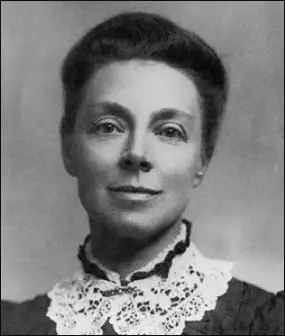
On this day in 1914 General Noel De Castlenau ordered a frontal attack on German positions. The French attacks were initially successful but eventually they were driven back beyond the town of Albert.
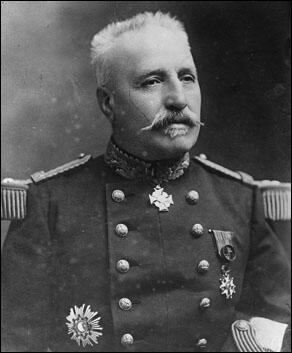
On this day in 1915 the British Army launched a chloride gas attack at Loos on the Western Front. However, the wind blew it back into the faces of the advancing troops. Chlorine gas destroyed the respiratory organs of its victims and this led to a slow death by asphyxiation. One nurse described the death of one soldier who had been in the trenches during a chlorine gas attack. “He was sitting on the bed, fighting for breath, his lips plum coloured. He was a magnificent young Canadian past all hope in the asphyxia of chlorine. I shall never forget the look in his eyes as he turned to me and gasped: I can’t die! Is it possible that nothing can be done for me?” It was a horrible death, but as hard as they tried, doctors were unable to find a way of successfully treating chlorine gas poisoning.
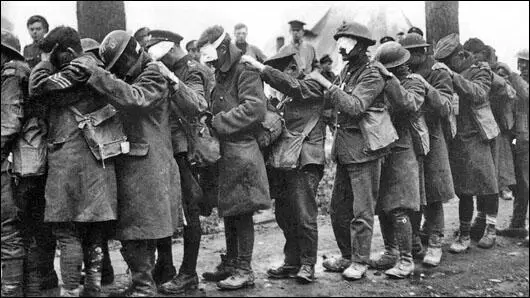
On this day in 1916 Innes Meo records in his diary details of shellshock. Between 1914 and 1918 the British Army identified 80,000 men (2% of those who saw active service) as suffering from shell-shock. A much larger number of soldiers with these symptoms were classified as 'malingerers' and sent back to the front-line. A much larger number of soldiers with these symptoms were classified as 'malingerers' and sent back to the front-line. In some cases men committed suicide. Others broke down under the pressure and refused to obey the orders of their officers. Some responded to the pressures of shell-shock by deserting. Sometimes soldiers who disobeyed orders got shot on the spot. In some cases, soldiers were court-martialled. Official figures said that 304 British soldiers were court-martialled and executed. A common punishment for disobeying orders was Field Punishment Number One. This involved the offender being attached to a fixed object for up to two hours a day and for a period up to three months. These men were often put in a place within range of enemy shell-fire.
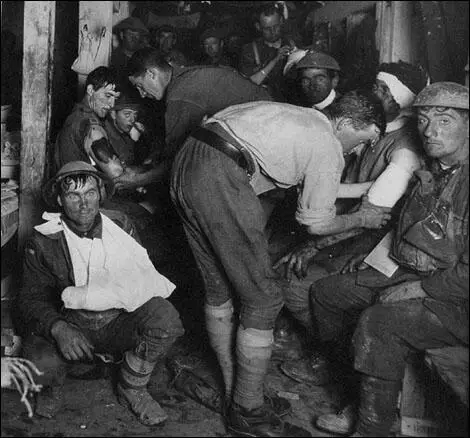
On this day in 1917 Alexander Kerensky, the new Supreme Commander of the Russian Army, formed a new Provisional Government in Russia that includes more Mensheviks and Socialist Revolutionaries. However, with the Bolsheviks controlling the Soviets, and now able to call on 25,000 armed militia, Kerensky was unable to reassert his authority. Morgan Philips Price explained in the Manchester Guardian on 19th November, 1917, why the government of Alexander Kerensky fell: "The Government of Kerensky fell before the Bolshevik insurgents because it had no supporters in the country. The bourgeois parties and the generals and the staff disliked it because it would not establish a military dictatorship. The Revolutionary Democracy lost faith in it because after eight months it had neither given land to the peasants nor established State control of industries, nor advanced the cause of the Russian peace programme. Instead it brought off the July advance without any guarantee that the Allies had agreed to reconsider war aims. The Bolsheviks thus acquired great support all over the country. In my journey in the provinces in September and October I noticed that every local Soviet had been captured by them."
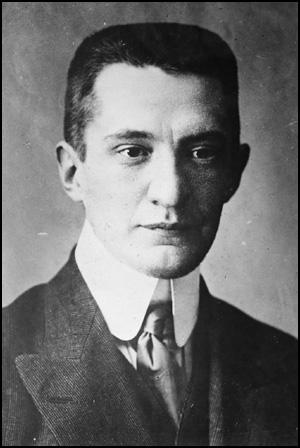
On this day in 1919 President Woodrow Wilson suffers a breakdown during a nation-wide campaign to win support for the Paris Peace Agreement and was an invalid for the last three and a half years of his life. Woodrow Wilson died on 3rd February 1924.
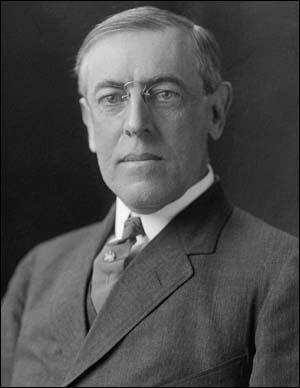
On this day in 1926 Henry Ford announced an 8 hour, 5-day work week for workers at the Ford Motor Company. At that time the company was producing 10,000 cars every 24 hours. This was 60 per cent of America's total output of cars. Ford rejected the criticism that it was a publicity stunt. "To our way of thinking, this was an act of social justice, and in the last analysis, we did it for our own satisfaction of mind. There is a pleasure in feeling that you have made others happy - that you have lessened in some degree the burdens of your fellow-men - that you have provided a margin out of which may be had pleasure and saving. Good-will is one of the few really important assets of life. A determined man can win almost anything that he goes after, but unless, in his getting, he gains good-will, he has not profited much."

On this day in 1939 German Luftwaffe drops firebombs on Warsaw. This was soon after Reinhard Heydrich had told Schutz Staffeinel (SS) commanders in Poland that all Jews were to be confined to special areas in cities and towns. These ghettos were to be surrounded by barbed wire, brick walls and armed guards.
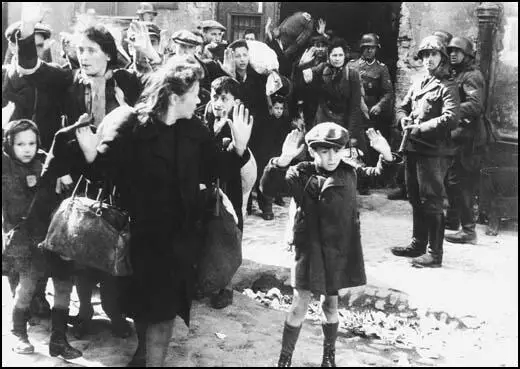
On this day in 1940, Joachim von Ribbentrop sent a telegram to Vyacheslav Molotov, the Soviet foreign minister, informing him that Germany, Italy and Japan were about to sign a military alliance. Ribbentrop pointed out that the alliance was to be directed towards the United States and not the Soviet Union.
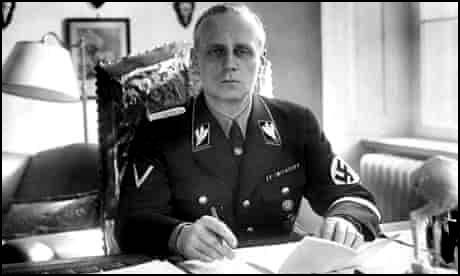
On this day in 1940 the German High Commissioner in Norway sets up the Vidkun Quisling government.
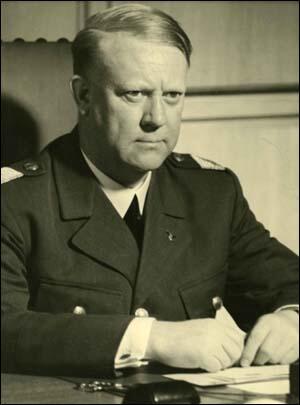
On this day in 1944 Adolf Hitler called up all remaining males between 16 and 60 in Germany for army service. In the last few weeks of the war General Helmuth Weidling commanded underage Hitler Youth soldiers in the defence of Berlin. The lives of these young boys were sacrificed in order to prolong Hitler's life for a few days. (62) The last photograph ever taken of the Führer shows him decorating twenty Hitler Youth soldiers in the garden just outside his bunker. All the boys were war orphans.
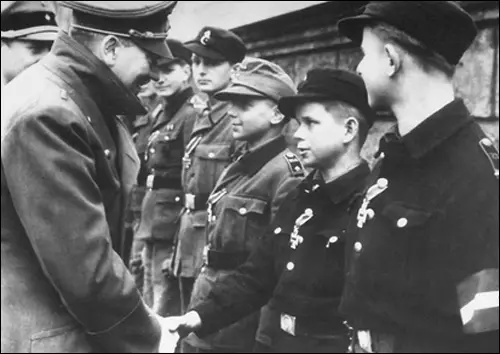
On this day in 1963. Lord Denning released the UK government's official report on the John Profumo Affair. It was a best-seller; 105,000 copies were sold, 4,000 in the first hour. It was dismissed as a "whitewash" and covered up the role of the intelligence services in the scandal.
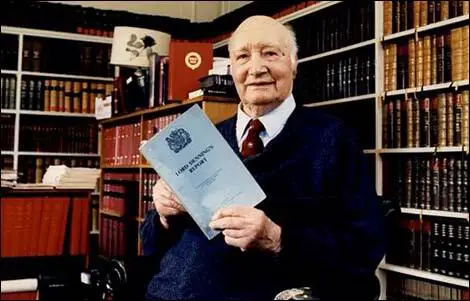
On this day in 1971 Air Marshal Robert Saundby, Deputy Chief of Staff at Bomber Command in the Second World War, died.
